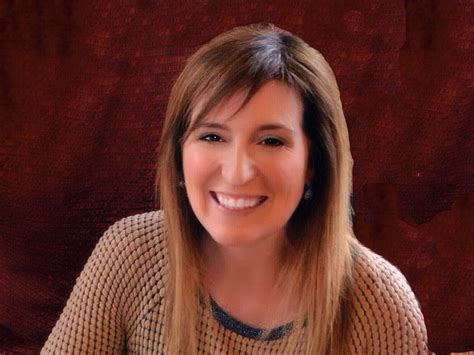A Quote by William E. Gladstone
It is difficult to see anything but infatuation in the destructive temperament which leads to the action ... that each of us is to rejoice that our several units are to be distinguished at death into countless millions of organisms; for such, it seems, is the latest revelation delivered from the fragile tripod of a modern Delphi.
Related Quotes
Every atom you possess has almost certainly passed through several stars and been part of millions of organisms on its way to becoming you. We are each so atomically numberous and so vigorously recycled at death that a significant number of our atoms-up to a billion for each of us, it has been suggested-probably once belonged to Shakespeare. A billion more each came from Buddha and Genghis Khan and Beethoven, and any other historical figure you care to name.
In our learning, let us not neglect the fountain of revelation. The scriptures and the words of modern-day apostles and prophets are the sources of wisdom, divine knowledge, and personal revelation to help us find answers to all the challenges in life. Let us learn of Christ; let us seek out that knowledge which leads to peace, truth, and the sublime mysteries of eternity.
I believe in revelation, but not in revelation which each religion claims to possess, but in the living revelation which surrounds us on every side - mighty, eternal, unceasing, incorruptible, clear, distinct, universal as is the being from whom it proceeds, in that revelation which speaks to us and penetrates us from the moment we are born until we die.
We are here because over billions of years, countless variables fell into place, any of which could have taken another path. We are essentially a beautiful fluke, as are the millions of other species with which we share this planet. Our cells are composed of atoms and dust particles from distant galaxies, and from the billions of living organisms that inhabited this planet before us.
If one looks at all closely at the middle of our own century, the events that occupy us, our customs, our achievements and even our topics of conversation, it is difficult not to see that a very remarkable change in several respects has come into our ideas; a change which, by its rapidity, seems to us to foreshadow another still greater. Time alone will tell the aim, the nature and limits of this revolution, whose inconveniences and advantages our posterity will recognize better than we can.
The heavenly blessing is to be delivered from the law, sin and death; to be justified and quickened to life: to have peace with God; to have a faithful heart, a joyful conscience, a spiritual consolation; to have the knowledge of Jesus Christ; to have the gift of prophecy, and the revelation of the Scriptures; to have the gift of the Holy Ghost, and to rejoice in God.
The aggressive incoherence of our common surroundings can be described as entropy made visible. The way we have disposed things on the landscape leads us in the direction of disorder and death. They are categorically evil. These dispositions are destroying our only home-planet and other organisms that share it. They defeat our need to care about where we are and the things in place there. They prompt us to feel that civilization is not worth carrying on. They rob us of our identity and our will to live. These things are not about personal taste or style.
It seems to me that one ought to rejoice in the fact of death-- ought to decide, indeed, to earn one's death by confronting with passion the conundrum of life. One is responsible to life: It is the small beacon in that terrifying darkness from which we come and to which we shall return. One must negotiate this passage as nobly as possible, for the sake of those who are coming after us.
In each of us there is another whom we do not know. He speaks to us in dreams and tells us how differently he sees us from the way we see ourselves. When, therefore, we find ourselves in a difficult situation to which there is no solution, he can sometimes kindle a light that radically alters our attitude - the very attitude that led us into the difficult situation.
What has the Cross left in each of us? You see, it gives us a treasure that no one else can give: the certainty of the faithful love which God has for us. A love so great that it enters into our sin and forgives it, enters into our suffering and gives us the strength to bear it. It is a love which enters into death to conquer it and save us.








































